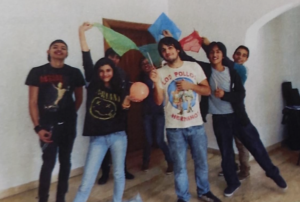Nuance: The Missing Link?
In the 1960s, the renowned Dalcroze teacher Robert (Bob) Abramson had traveled to Geneva to take exams for the diplôme superiuer at the Institut Jaques-Dalcroze. He reported to his class in the 1980s (of which I was a student) that for his solfège exam he had taught a lesson from Émile Jaques-Dalcroze’s book solfège rythmique.…
Read More6th International Conference for Dalcroze Studies
“Ecologies of Practice in Music and Movement” Interested in research and practice of Dalcroze Eurhythmics and related fields? Save the date for a unique summer learning and sharing experience at the 6th International Conference for Dalcroze Studies to be held for the first time in the USA at the Marta Sanchez Dalcroze Training Center of…
Read MoreHow Dalcroze Eurhythmics Has Transformed my Solfège and Ear Training Teaching
For twenty years I have been teaching the ear training class, also called musical language or solfège, at the Escuela Superior de Música of the Instituto Nacional de Bellas Artes y Literatura in Mexico City. When I first began to teach these classes, I did so in the same traditional way in which I had…
Read MoreA Brief History of Dalcroze Eurhythmics in Guatemala
Making Dalcroze eurhythmics visible in Guatemala is a task that invites researchers to perform deep analysis. It was not possible to confirm the presence of a music teacher in Guatemala who held official accreditation endorsed by the Institut Jaques-Dalcroze in Geneva. However, the impact of this music pedagogy in the development of local musical education…
Read MoreVideo: Capriccio appassionato from 3 Morceaux, Op. 46
This dazzling performance comes from the February 2020 DSA Memorial Scholarship Concert, a fundraising event to support the next generation of Dalcroze Educators. Concert pianist Adalberto Maria Riva performs Emile-Jaques Dalcroze’s “Capriccio appassionato.” The entire concert livestream is available on YouTube, which also contains commentary from Riva himself. The DSA reflects the richness and diversity…
Read More



